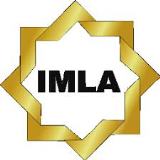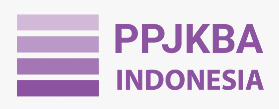ANALISIS HUKUM CRYTOCURRENCY KAJIAN FIKIH DAN FATWA-FATWA DI LUAR NEGERI
DOI:
https://doi.org/10.21274/ahkam.2023.11.1.151-168Keywords:
Cryptocurrency, Fiqh, Fatwa StudiesAbstract
Cryptocurrency is the first application of Blockchain technology, but the potential of this technology is not limited to the monetary system and its widespread adoption is still a topic of debate around the world which causes many countries are investigating this cryptocurrency. Here the author attempts to assess crypto assets based on studies and fiqh fatwas abroad. In this study the authors use normative legal research, normative legal research is intended to provide legal arguments as a basis for determining whether an event is right or wrong. To analyze existing theories, this study uses a conceptual approach to analyze existing theories so that solutions to legal problems can be found. The results in this study are that there are two thoughts, the first school of thought argues that cryptocurrencies can be used for payments, remittances, and deposit assets as long as users know in detail the types of cryptocurrencies, their main characteristics and the risks associated with them. Due to the lack of a clear legal framework for digital currencies and the substantial harm involved for individuals and countries, second opinions are prohibited in the eyes of the Shari'ah due to the excessive risk to individuals, countries and the absence of a clear legal umbrella regarding these cryptocurrencies.
References
Afrizal, Marliyah Marliyah, and Fuadi Fuadi, “Analisis Terhadap Cryptocurrency (Perspektif Mata Uang, Hukum, Ekonomi Dan Syariah).” E-Mabis: Jurnal Ekonomi Manajemen dan Bisnis, Volume 22, Nomor 2, 2021.
Aibak, Kutbuddin, “Penalaran Istislahi Sebagai Metode Pembaharuan Hukum Islam” Al-Manahij: Jurnal Kajian Hukum Islam, 2013.
Arrahmah, Syifa, "Hasil Bahtsul Masail Tentang Halal Dan Haram Transaksi Kripto", dalam https://www.nu.or.id/nasional/hasil-bahtsul-masail-tentang-halal-dan-haram-transaksi-kripto-IhUDC.
Eza, “Hukum Majlis Agama Berkaitan Aset Digital (Mata Wang Kripto) Seperti Bitcoin,” dalam https://www.majalahlabur.com/pelaburan/hukum-majlis-agama-berkaitan-aset-digital-mata-wang-kripto-seperti-bitcoin/.
Ida Madieha Abd Ghani Azmi, Nazli Ismail Nawang, “Cryptocurrency: An Insight Into the Malaysian Regulatory Approach.” Psychology and Education Journal, Vol. 58, No. 2, 2021.
Jati, Hardian Satria, and Ahmad Arif Zulfikar, “Transaksi Cryptocurrency Perspektif Hukum Ekonomi Syariah”, Jurnal Al-Adalah, Vol. 6, No. 2, 2021.
Moorthy, Durgha, “A Study on Rising Effects of Cryptocurrency in the Regulations of Malaysian Legal System”, International Journal of Business, Economics and Law, Vol. 15, No. 4, 2018.
Muhaimin, Metode Penelitian Hukum, Edited by Fatia Hijriyanti. Mataram: Pertama, 2020.
Munajat, Makhrus, “Metode Penemuan Hukum Dalam Perspektif Filsafat Hukum Islam”, asy-Syir’ah, Vol. 42, No. 1, 2008.
Nisa, Madha Ratu, and Muhammad Rofiq, “The Renewal of Islamic Economic Law Hukum Cryptocurrency Perspektif Fiqh Kontemporer”, Al-Ikhtisar, Vol. 2, No. 2, 2021.
Anhar, Dato’ Dr. Haji Bin Haji Opir, “Hukum Matawang Kripto Cryptocurrency)”, Satu Analisis Syara’, 2021.
Pamungkas, Unggul Dwi, and Amrie Firmansyah. “Bagaimana Pengaturan Kepemilikan Cryptocurrency Oleh Perusahaan Berdasarkan Standar Akuntansi Keuangan?” Jurnal Ilmiah Akuntansi Kesatuan, Vol. 9, No. 3, 2021.
Rafii, Raha, “Fatwās on Cryptocurrency: The Syrian Islamic Council and the International Union of Muslim Scholars’ Al-Qaradaghi” dalam https://islamiclaw.blog/2022/04/29/the-syrian-islamic-councils-cryptocurrency-fatwa/.
Sukumaran, Shangeetha, Thai Siew Bee, and Shaista Wasiuzzaman. “Cryptocurrency as an Investment: The Malaysian Context”, Risks, Vol. 10, No. 4, 2022.
Tarmizi, Luqman. “Bayan Linnas Siri ke 153: Hukum Penggunaan Mata Wang Bitcoin”, Mufti Of Federal Territory’s Office, 2018.
Dar Ifta’ Misriyyah, ما حكم العمل بالمضاربة البيتكوين؟ dalam www.youtube.com, 2020. https://www.youtube.com/watch?v=yIm_Xem6CPw.













